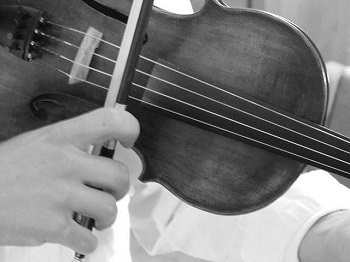When you can’t find your iPhone, do you feel as though you can’t think straight? It’s not your imagination.
It is a common feeling for people who are regular users of mobile devices to feel as though they aren’t able to think as clearly or to remember as much when they are separated from those gadgets, and a recent study has shown that this isn’t just a feeling…
People who are suddenly separated from their iPhones don’t perform as well on cognitive tests.
The results of a new study that was conducted by researchers at the University of Missouri determined that subjects who were the owners of iPhones and who were separated from those mobile devices ended up performing measurably more poorly on cognitive tests. This study did not go to the extent as to say that using smartphones was making people smarter. Instead, what it suggested was that people who typically had cell phones and used them on a regular basis experienced notably anxiety when those gadgets were taken away, to the point that they were not able to concentrate as well as they typically would.
Subjects were informed that they would be testing out new types of mobile devices for measuring blood pressure.
 Once they were hooked up to the monitors, they were required to complete a simple word search style puzzle. Once that first puzzle was completed, they were asked to finish another one. The difference during the second test was that they were required to relinquish their iPhones in order to do it, as they were told that the smartphones were causing “Bluetooth interference” with the blood pressure gadgets that they were led to believe that they were testing.
Once they were hooked up to the monitors, they were required to complete a simple word search style puzzle. Once that first puzzle was completed, they were asked to finish another one. The difference during the second test was that they were required to relinquish their iPhones in order to do it, as they were told that the smartphones were causing “Bluetooth interference” with the blood pressure gadgets that they were led to believe that they were testing.
During that second test, their blood pressure, heart rate, and anxiety levels all rose. What was highly notable about this reaction was that their cognitive function slipped, as well, and they were not able to do as well on the simple word search puzzle.
The conclusion that researchers drew from this mobile devices study was that if a large exam or business meeting is coming up, don’t leave the smartphone at home, as doing so could be harmful to performance.
Denny |
December 30, 2014
A recent study revealed that using a smartphone creates similar responses as learning a musical instrument.
While learning how to send and receive texts on mobile technology such as a smartphone may not be as challenging to most people as learning to play a musical instrument, a recent study has revealed that these two practices could have quite a bit in common when it comes to the brain patterns that they produce.
Researchers have discovered that using a smartphone can impact the brain in a similar way to learning to play the violin.
The parts of the brain that guide finger movements are stimulated in the same way when using a smartphone with a touchscreen as they are when learning to play a musical instrument. Every part of the body is linked to a processing area within the brain that is known as the somatosensory cortex. That area in the brain is “plastic”, which means that they continue to change and develop throughout our entire lives. Therefore, when a person repeatedly practices playing the violin, the area that controls the fingers grows larger than it does in those who don’t play a musical instrument with their fingers.
Mobile technology use over touchscreens has now shown to produce growth of a similar nature.
 At the Institute of Neuroinformatics of the University of Zurich and ETH Zurich, researcher Arko Ghosh examined the impact of daily smartphone use on the plastic areas of the brain. Ghosh stated that “Smartphones offer us an opportunity to understand how normal life shapes the brains of ordinary people.”
At the Institute of Neuroinformatics of the University of Zurich and ETH Zurich, researcher Arko Ghosh examined the impact of daily smartphone use on the plastic areas of the brain. Ghosh stated that “Smartphones offer us an opportunity to understand how normal life shapes the brains of ordinary people.”
Ghosh’s team joined another team from the University of Fribourg. Together, they applied electroencephaolography (EEGs) to measure the brain activity within 37 people. Within that group, 26 people were touchscreen smartphone users. The remaining 9 people used cell phones with physical number keys.
While the jury is still out whether or not mobile technology such as smartphones are actually safe for overall health – with the body of conflicting evidence growing quite regularly – this study has suggested that in at least this one circumstance, the use of the devices with touchscreens can help to stimulate the brain and grow areas in a similar manner that is experienced by violin players. They determined that the growth was greatest in the specific part of the brain that is responsible for the control of the thumbs. The key difference between smartphone use and violin playing was that the growth occurred in the brain regardless of how long the user had been using the device. In the case of violin players, the growth depended on the age at which they began playing.
 Once they were hooked up to the monitors, they were required to complete a simple word search style puzzle. Once that first puzzle was completed, they were asked to finish another one. The difference during the second test was that they were required to relinquish their iPhones in order to do it, as they were told that the smartphones were causing “Bluetooth interference” with the blood pressure gadgets that they were led to believe that they were testing.
Once they were hooked up to the monitors, they were required to complete a simple word search style puzzle. Once that first puzzle was completed, they were asked to finish another one. The difference during the second test was that they were required to relinquish their iPhones in order to do it, as they were told that the smartphones were causing “Bluetooth interference” with the blood pressure gadgets that they were led to believe that they were testing.
 At the Institute of Neuroinformatics of the University of Zurich and ETH Zurich, researcher Arko Ghosh examined the impact of daily smartphone use on the plastic areas of the brain. Ghosh stated that “Smartphones offer us an opportunity to understand how normal life shapes the brains of ordinary people.”
At the Institute of Neuroinformatics of the University of Zurich and ETH Zurich, researcher Arko Ghosh examined the impact of daily smartphone use on the plastic areas of the brain. Ghosh stated that “Smartphones offer us an opportunity to understand how normal life shapes the brains of ordinary people.”